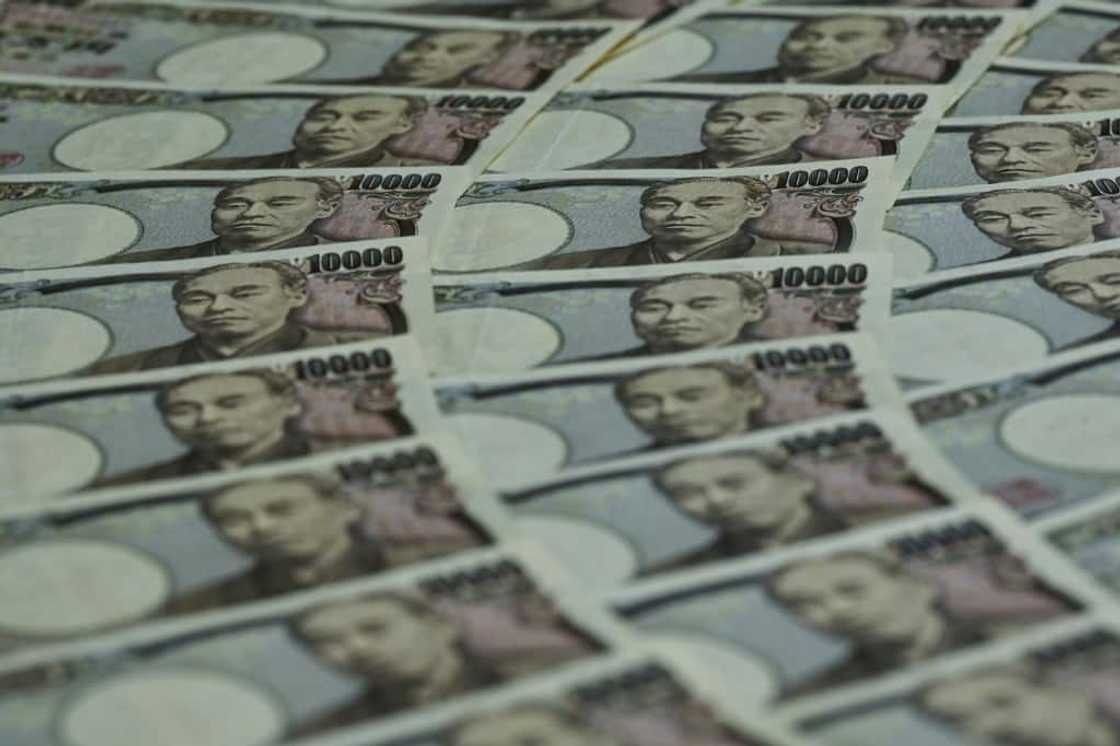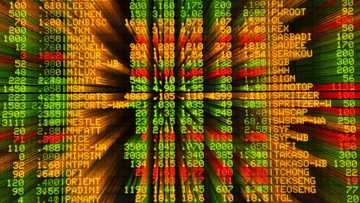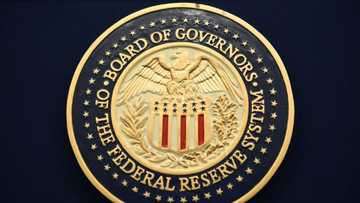Markets mostly drop as oil spike fuels fresh inflation fear

Source: AFP
PAY ATTENTION: Have you recorded a funny video or filmed the moment of fame, cool dance, or something bizarre? Inbox your personal video on our Facebook page!
Most markets fell Wednesday as a jump in oil prices to 10-month highs rekindled worries of another US Federal Reserve interest rate hike.
The dollar eased slightly against its major peers after rallying Tuesday on new monetary tightening bets, though it remained elevated.
The share selling came after US traders returned from a long weekend to spark a sell-off after Saudi Arabia and Russia said they would extend crude output cuts to the end of the year.
The news, which surprised some owing to the length of time, sent both main oil contracts to levels not seen since November, with Brent above $90 for the first time this year. They were marginally lower Wednesday.
The price spike hit hopes the Fed's monetary tightening drive was over following a string of data indicating more than a year of rate hikes had managed to bring inflation down from four-decade highs and softened the labour market.
Observers said higher energy costs would complicate the central bank's work as they accounted for a large part of the surge in prices in the wake of Russia's invasion of Ukraine.
PAY ATTENTION: Click “See First” under the “Following” tab to see Briefly News on your News Feed!
"Rising oil prices are officially the new inflation stoker," said Stephen Innes at SPI Asset Management. "Everyone notices that this rally feels different, suggesting that 'Oil', the Great Inflationary Dragon, is not yet slain."
And Tim Waterer at KCM Trade warned that the gains have come even with a strong greenback, making dollar-crude more expensive for clients buying with other currencies.
He added that this means "that should the greenback come off the boil at some point there is potentially more room to the upside for the oil market".
Meanwhile, US monetary policymakers offered differing outlooks on the way forward.
Fed Governor Christopher Waller said decision-makers had room to stand back to assess the impact of past tightening, telling CNBC: "There was nothing that is saying we need to do anything imminent anytime soon."
But Cleveland Fed boss Loretta Mester said she could "well imagine, from what I see so far, that we might have to go a bit higher".
Rates are already at a two-decade high and some analysts warn that further increases could risk tipping the world's top economy into recession.
Yen at 10-month low
"The Fed is sailing in shallow waters in a thick fog," said JPMorgan Asset Management's David Kelly. "It should be moving very slowly and be ready to halt or reverse its monetary tightening."
After all three main indexes on Wall Street ended in the red, Asia mostly followed suit, though they pared earlier hefty losses.
Hong Kong, Singapore, Seoul, Wellington, Mumbai, Bangkok and Taipei extended Tuesday's losses, though Tokyo, Shanghai, Manila and Jakarta edged up.
Sydney was also down even as data showed the Australian economy showed resilience in the second quarter of the year despite higher borrowing costs.
London fell at the open, while Frankfurt retreated as data showed German factory orders sank more than expected in July and Paris was also lower.
Traders were keeping tabs on Tokyo after the dollar jumped to a 10-month peak against the yen on increased rate hike expectations, and above the levels that led officials to step in with support last year.
Japan's vice finance minister for international affairs made a verbal intervention, saying authorities were ready to take action when needed.
"If these moves continue, the government will deal with them appropriately without ruling out any options," said Masato Kanda, the top currency official.
The yen bounced back in Asian trade but remains under pressure, with the Bank of Japan's ultra-loose monetary policy expected to keep it from rallying much higher any time soon.
In Hong Kong, struggling developers rallied -- albeit from very low levels -- as traders welcomed a front-page comment in the state-backed Securities Times in which it urged officials to press on with their policy support for the industry.
Firms have enjoyed recent big gains after China's recent measures to support the property sector, including lowering down payments for some mortgages.
Massively indebted heavyweights Evergrande and Sunac rocketed more than 50 percent each, while Country Garden bumped 20 percent higher, helped by news that it had paid interest on a dollar-denominated bond Tuesday, averting a default for now.
Still, traders are hoping for a lot more from Beijing as the industry -- which accounts for a huge part of the economy -- remains in deep trouble with many firms still struggling to keep from going under.
Key figures around 0715 GMT
Tokyo - Nikkei 225: UP 0.6 percent at 33,241.02 (close)
Hong Kong - Hang Seng Index: DOWN 0.2 percent at 18,428.44
Shanghai - Composite: UP 0.1 percent at 3,158.08 (close)
London - FTSE 100: DOWN 0.5 percent at 7,401.21
West Texas Intermediate: DOWN 0.2 percent at $86.51 per barrel
Brent North Sea crude: DOWN 0.2 percent at $89.86 per barrel
Dollar/yen: DOWN at 147.23 yen from 147.68 yen on Tuesday
Euro/dollar: UP at $1.0734 from $1.0726
Pound/dollar: UP at $1.2575 from $1.2565
Euro/pound: UP at 85.40 pence from 85.34 pence
New York - Dow: DOWN 0.6 percent at 34,641.97 (close)
-- Bloomberg News contributed to this story --
PAY ATTENTION: Сheck out news that is picked exactly for YOU ➡️ click on “Recommended for you” and enjoy!
Source: AFP





